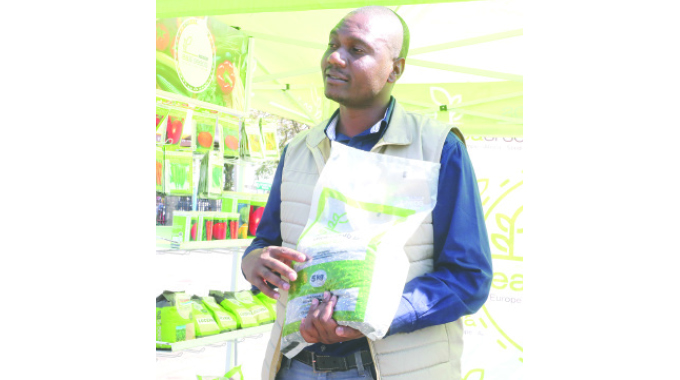Tips from Zimbabwe’s pasture giant

Louis Taderera
LIVESTOCK farming is a significant contributor to the economies of many African countries and the whole world, including Zimbabwe.
However, it can be challenging to achieve maximum profitability due to various factors such as climate change, disease outbreaks and fluctuating prices.
One way to overcome these obstacles is through the use of improved pasture seeds to produce your own fodder.
These seeds should be specially selected and bred to provide superior nutritional value, higher yields, and better drought tolerance. Below are 10 tips for maximizing livestock production profitability using improved pasture seeds:
1. Choose the right variety — Selecting the appropriate variety of improved pasture seed depends on several factors like soil type, climatic conditions and intended usage. Consult with experts at the European African Seed Initiative (EASI) Seeds to determine the best option for your specific needs.
2. Plant at the Right Time — Timing is critical when it comes to planting improved pasture seeds. Ensure that the soil moisture content is adequate before sowing to promote quick germination and establishment. Also, avoid planting during extreme hot or cold seasons.
3. Correct Planting Depth — Proper planting depth ensures good root development and helps prevent erosion. Use a drill or broadcast seeder to plant the seeds at the recommended rate and depth based on the size of the seed.
4. Appropriate Grazing Management — Intensive grazing management practices such as rotational grazing, strip grazing, and stockpiling can enhance the performance of improved pasture. Rotational grazing involves dividing the land into sections and allowing animals to graze one section at a time while resting the remaining portions. Strip grazing entails creating strips of dividing large paddocks into smaller sections or strips, which are then allocated for grazing on a rotational basis.
This technique allows farmers to manage their land more efficiently and effectively by reducing overgrazing and promoting even distribution of manure and urine across the entire paddock whereas stockpiling involves leaving some areas ungrazed until later in the year when grass growth slows down.
5. Balanced Rations – The pasture seed varieties at EASI Seeds provide an excellent source of nutrients that can meet most of the nutritional requirements of grazing animals as well as poultry. A well-managed pasture provides a balance of grasses and legumes that offer protein, energy, vitamins, minerals, and fibre.
The key is to ensure that the forage crop is harvested at the right stage and are mature enough to contain high levels of carbohydrates and protein but not too old that they lose their palatability and digestibility.
6. Higher Yields — Compared to traditional varieties, improved pasture seeds from EASI Seeds can yield up to four times more biomass per hectare. This means more fodder for your animals, resulting in increased milk production, weight gain, and reproductive rates.
7. Longer Growing Season — Our improved pasture seeds have been developed to thrive under varying environmental conditions, including drought and low temperatures. As such, they can extend the growing season beyond what would normally be possible with traditional varieties.
8. Reduced Labour Requirement — Because improved pasture seeds such as our varieties of forage sorghums which grow faster and require less maintenance, there is less labour involved in establishing and maintaining stands. You can focus on other aspects of your farming business while still achieving optimal yields.
9. Market Opportunities — By using growing improved pasture, you can tap into niche markets that demand high-quality forage crops such as lucerne. This includes horse owners, dairy producers, and others who prioritise animal welfare and sustainability.
10. Increased Soil Fertility — Improved pasture legume seeds such as lablab and sunhemp actively fix nitrogen in the soil, increasing its fertility and productivity over time. This reduces the need for expensive fertilisers and promotes a self-sufficient system.
Ultimately, using improved pasture seeds can lead to higher profits due to increased productivity and reduced input costs. Whether you are running a large-scale commercial operation or a small family farm, these seeds offer tangible benefits that translate directly to increased profit margins.











Comments